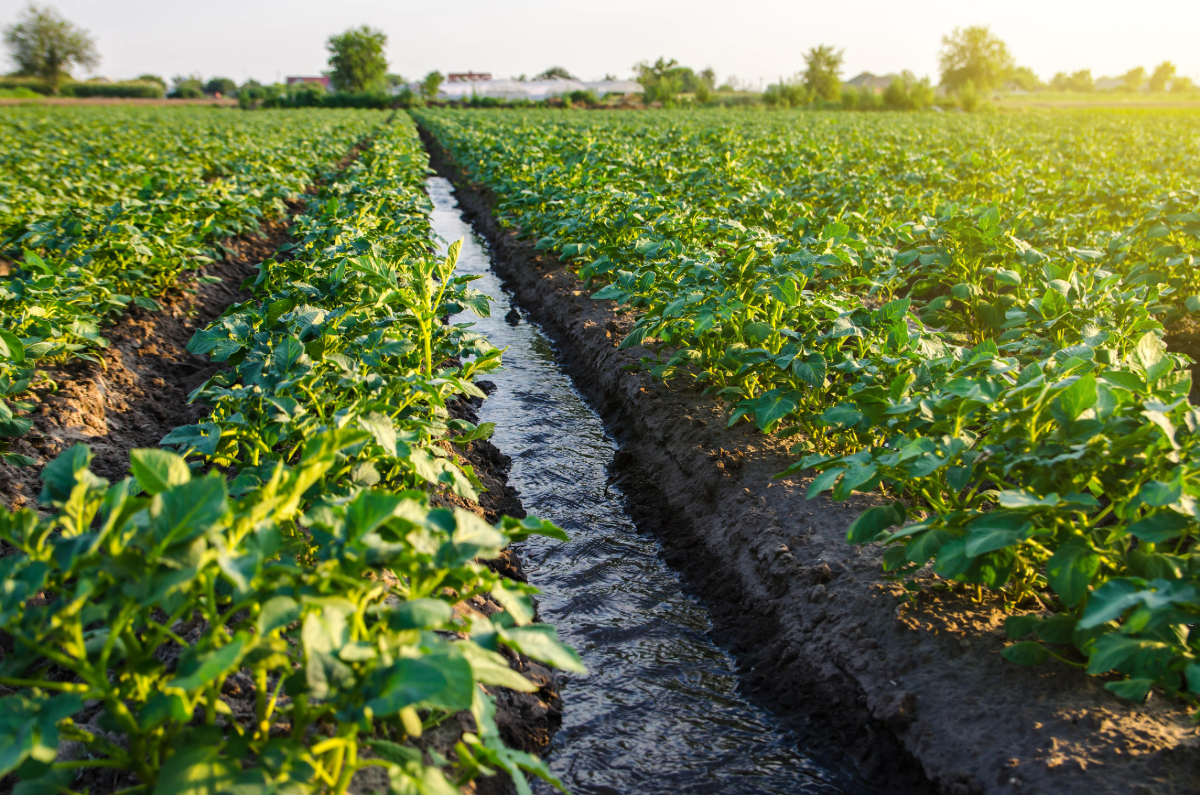Water is a critical resource for agriculture, impacting crop yields, farm profitability, and environmental sustainability. Effective water management in agriculture is essential for optimizing water use, reducing waste, and supporting long-term agricultural productivity. This article explores sustainable methods for water management, highlights key activities for managing water resources, and discusses how to develop a sustainable water management system.
Importance of Water Management in Agriculture
Effective water management in agriculture is critical for optimizing crop production and ensuring sustainability. Here’s a breakdown of its key components:
Optimizing Crop Growth: Proper water management ensures that crops receive the right amount of water at the right time, which is crucial for their growth and yield. Efficient irrigation practices help maximize crop productivity while preventing over- or under-watering.
Minimizing Water Wastage: By employing advanced irrigation techniques and scheduling, water management reduces water wastage. This not only conserves water resources but also lowers operational costs associated with excess water use.
Enhancing Soil Health: Consistent and appropriate watering helps maintain soil moisture and health. Proper water management practices prevent soil erosion, reduce salinization, and promote the development of healthy root systems.
Conserving Water Resources: Sustainable water management practices focus on conserving water by using it more efficiently. Techniques such as drip irrigation, rainwater harvesting, and soil moisture monitoring contribute to long-term water conservation.
Reducing Environmental Impact: Implementing effective water management strategies minimizes the environmental footprint of agricultural operations. It helps prevent runoff and pollution, protecting local water sources and ecosystems.
Improving Farm Resilience: Proper water management enhances the resilience of farming operations to droughts and other climatic challenges. By planning for various scenarios and using water resources wisely, farmers can better withstand and adapt to changing conditions.
Challenges of Agricultural Water Management
- Water Scarcity: Limited water resources due to climate variability and over-extraction can strain agricultural needs.
- Water Quality Issues: Pollution from runoff and soil salinization affects crop health and productivity.
- Aging Infrastructure: Outdated irrigation systems can lead to inefficiencies and higher maintenance costs.
- Regulatory Constraints: Compliance with evolving water regulations can complicate water management practices.
- Climate Change Impacts: Unpredictable weather patterns and changing water cycles add uncertainty to water availability.
Addressing these challenges involves implementing efficient irrigation practices, investing in modern technologies, and staying updated on regulatory changes.
Key Activities for Effective Water Management
- Assessing Water Needs: Determine the water requirements of different crops based on their growth stages and local climate conditions. This helps in applying the correct amount of water and avoiding over- or under-irrigation.
- Implementing Efficient Irrigation Systems: Utilize modern irrigation technologies such as drip or sprinkler systems that deliver water directly to plant roots. These systems reduce water waste and increase efficiency compared to traditional methods.
- Monitoring and Managing Water Use: Regularly monitor water usage and soil moisture levels using sensors and data analytics. This allows for timely adjustments and ensures optimal water application.
- Practicing Water Conservation: Adopt water-saving techniques such as rainwater harvesting, soil moisture conservation through mulching, and using cover crops to reduce water evaporation.
- Improving Soil Health: Maintain healthy soil through practices like composting and reducing soil erosion. Healthy soil can retain more moisture, reducing the need for frequent irrigation.
Developing a Sustainable Water Management System
Creating a sustainable water management system involves integrating various practices and technologies to optimize water use and reduce environmental impact. Here’s how to develop an effective system:
- Conduct a Water Audit: Assess current water usage and identify areas where improvements can be made. A water audit helps in understanding the existing inefficiencies and areas for conservation.
- Set Clear Objectives: Define goals for water conservation and efficiency. Objectives might include reducing water consumption by a certain percentage or implementing new irrigation technologies.
- Adopt Sustainable Practices: Implement best practices for water conservation, such as using drought-resistant crop varieties, adopting precision irrigation, and recycling wastewater for irrigation purposes.
- Engage in Continuous Improvement: Regularly review and update water management practices based on performance data and technological advancements. Engage with stakeholders to incorporate new strategies and technologies.
- Educate and Train Staff: Ensure that farm staff are trained in sustainable water management practices and understand the importance of efficient water use.
Overcoming Challenges with Effective Strategies
Addressing the challenges of agricultural water management requires a multifaceted approach. Implementing sustainable water management practices, investing in technology, and staying informed about regulatory changes can help mitigate these challenges. For reliable guidance on enhancing your water management practices, contact Groves Law. Our experienced team is dedicated to helping you develop effective strategies and solutions tailored to your specific needs.

